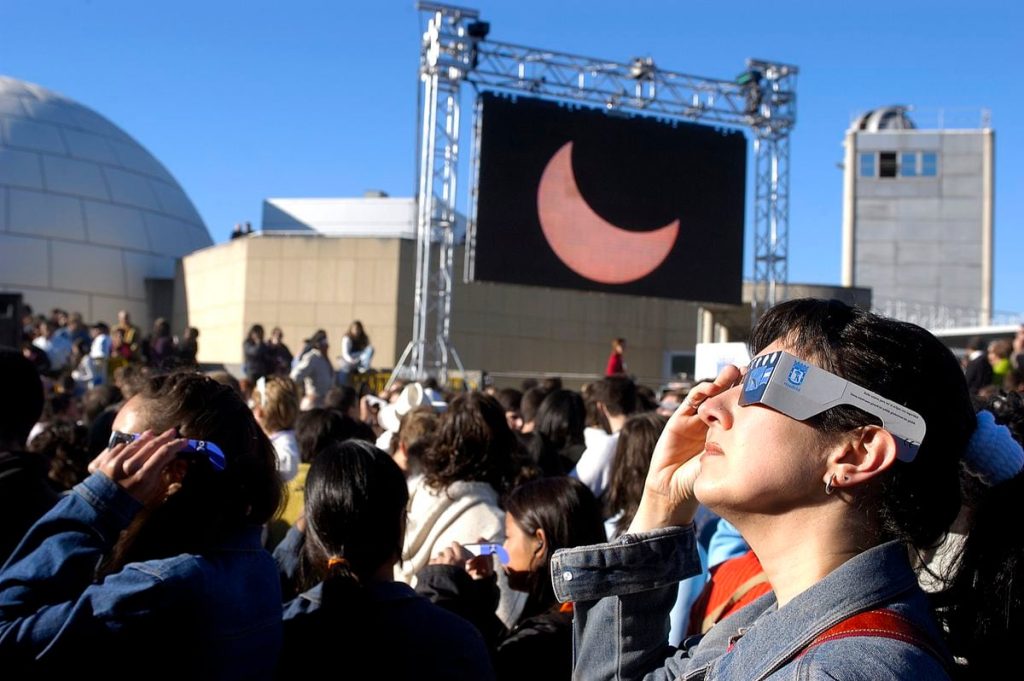After North America passed the torch to Spain with the recent total eclipse on April 8th, Spain is now in the spotlight as the only country in the world where the next total eclipse can be safely viewed on August 12, 2026. However, there has been no official plan put in place by Spanish authorities to handle the mass influx of people that will come to witness this astronomical event. This lack of planning could result in traffic gridlocks and shortages of essential eclipse viewing glasses, raising concerns among experts and officials.
The upcoming total eclipse in Spain in 2026 will be followed by another total eclipse in 2027 and an annular eclipse in 2028. These back-to-back celestial events present a unique opportunity for Spanish science and outreach, but also pose significant challenges in terms of organization and logistics. Experts caution that without proper planning, the country could face traffic chaos, supply shortages, and elevated risks of wildfires and other emergencies. The importance of securing an adequate supply of eclipse glasses, estimated at over 50 million units, is emphasized as a critical priority to prevent price gouging and ensure public safety.
Historically, eclipses have been viewed as bad omens in various cultures, but the modern perspective sees them as exciting phenomena that can spark an eclipse frenzy. However, the surge in interest also brings about challenges in maintaining public order and safety. Past eclipse events have seen shortages of viewing glasses, traffic jams, and accidents, highlighting the need for comprehensive planning and coordination on the part of authorities at all levels of government in Spain.
With the lack of a centralized institution like NASA in the United States to provide guidance and information on eclipses, Spain’s National Eclipse Commission has been established to address the upcoming celestial events. This commission aims to raise awareness among local, provincial, and regional authorities and engage in proactive planning to ensure a smooth and safe viewing experience for the public. The involvement of government ministries in supporting educational and scientific outreach efforts related to the eclipses is also crucial.
As Spain prepares to host millions of eclipse enthusiasts in the coming years, the challenges of infrastructure, transportation, and public safety loom large. Identifying optimal viewing locations and managing the influx of visitors to rural areas will require concerted efforts from local and national authorities. The potential economic benefits of hosting such large-scale astronomical events must be balanced with the need to protect the environment and ensure the well-being of both residents and visitors.
The upcoming total eclipse in Spain in 2026 poses a significant test for the country’s preparedness and capacity to manage large crowds, while subsequent eclipses in 2027 and 2028 will present additional logistical challenges. Ensuring the availability of eclipse glasses, coordinating traffic flow, and implementing safety measures will be paramount in creating a successful and memorable experience for all who come to witness these rare and awe-inspiring celestial events. By planning ahead and collaborating effectively, Spain can make the most of this astronomical opportunity and showcase its scientific and cultural heritage on the world stage.


